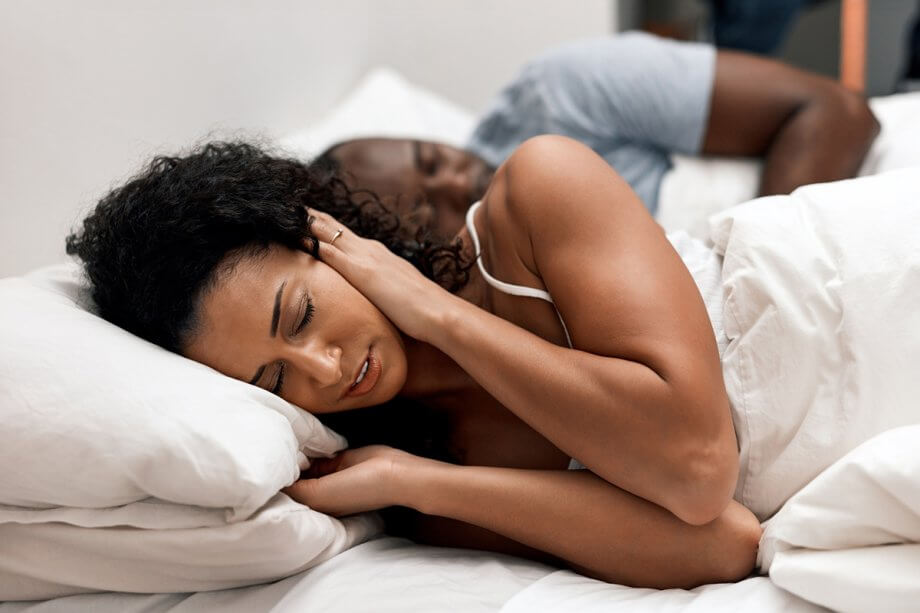Obstructive sleep apnea or OSA is a hazardous condition that, if untreated, can result in life-threatening health conditions like diabetes, stroke, and heart attack.
Many patients believe that OSA is just another term for loud snoring. The disorder has many other symptoms as well, and snoring may not always be present. For this reason, it can be challenging to determine whether you have obstructive sleep apnea that needs treatment by a medical or dental sleep medicine professional.
How Obstructive Sleep Apnea Occurs
When a patient sleeps, the tongue may become too relaxed and fall back across the airway, potentially obstructing it. Another problem that could lead to OSA is excess tissue in the throat, tongue, and upper abdomen. This tissue could pinch off the airway when the patient is at rest.
Symptoms of Obstructive Sleep Apnea
These symptoms may not appear in every case, but if you exhibit any of them, you should receive a professional evaluation:
- Observed pauses in breathing during the night
- Gasping and choking when breathing resumes
- Daytime fatigue, irritability
- Increased risk of motor vehicle accidents when driving
- Dry mouth
- Work and school performance issues
Risks of Untreated OSA
Undiagnosed sleep apnea has a direct link to metabolic and cardiovascular health risks. The intermittent lack of oxygen (hypoxia) that follows from frequent pauses in breathing puts considerable stress on a patient's cardiovascular system. Blood pressure may rise, brain oxygen levels may drop, and other worrisome consequences may occur.
Diagnosing OSA
If you have one or more of these common symptoms, you may need a medical sleep study. We work closely with local medical professionals to evaluate your symptoms and determine the best treatment options for you.
During a medical sleep study, you will spend a night in a sleep lab with multiple monitoring devices. The doctors there will observe your natural sleep patterns all night and create a report for your sleep specialist.
The lab will also assess you for other types of sleep apnea. Central sleep apnea shares many of the same symptoms as OSA, but the primary cause is a lack of proper signals from the brain to the respiratory system.
Treating Obstructive Sleep Apnea
Fortunately, physicians and dental sleep medicine specialists share several treatment methods for obstructive sleep apnea.
The most common treatment is CPAP or continuous positive airway pressure. CPAP machines blow a stream of air through a facial mask and directly into the patient's airway, keeping the area free of obstruction. However, not every sleep apnea patient can tolerate the use of a CPAP machine at night.
Dental sleep medicine specialists prescribe oral appliance therapy as a quiet, portable alternative to CPAP. Two types of oral appliances help alleviate the symptoms of obstructive sleep apnea: mandibular (jaw) advancement appliances and devices that hold the tongue away from the airway.
Managing Your Risk of OSA
One of the most common causes of obstructive sleep apnea is being overweight or obese. When patients lose some of their body weight, their risk of OSA drops.
Men over 40 have a higher risk of this disorder, but women have a similar level of risk after menopause. It is vital to keep in mind that obstructive sleep apnea can occur in patients with no other risk factors.
Frequently Asked Questions About Dental Sleep Medicine
How does oral appliance therapy work?
Oral appliances for sleep apnea fit somewhat like dental retainers. Some types hold the jaw in a slightly forward position to prevent the tongue from collapsing backward into the airway. Others hold the tongue in a safe position during sleep.
Why would I choose an oral appliance over CPAP?
CPAP is highly effective for many patients, but some individuals and their partners struggle to tolerate the bulky and noisy equipment. Patients with CPAP machines may toss and turn due to an inability to get comfortable, which can keep their partners awake.
On the other hand, oral appliances for sleep apnea are comfortable to wear over the teeth and make no noise to disturb family members. Oral appliances are much more travel-friendly for patients on the go.
At Dental Associates, we focus on bringing effective obstructive sleep apnea care to the Farmington, CT, community. If you have any questions about your risk of OSA or would like to explore treatment options, please get in touch with us today.

